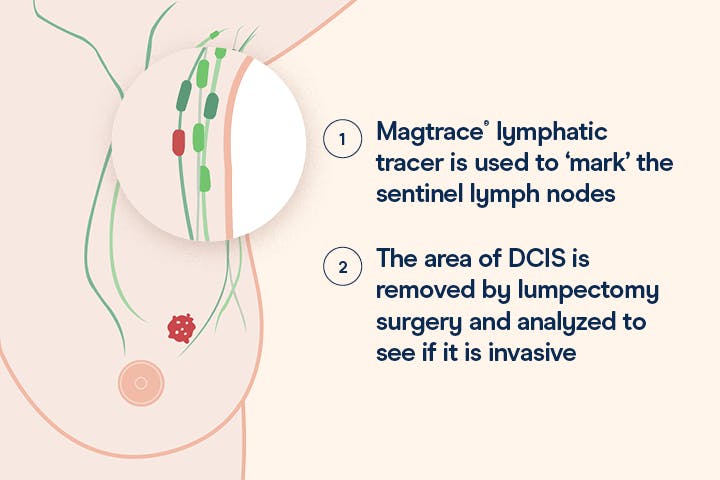Jeri's breast cancer experience and how she eliminated the need for a sentinel lymph node biopsy
Jeri's Diagnosis
In 2019, Jeri was diagnosed with high-risk Ductal Carcinoma in-Situ (DCIS) for a second time and was told that surgery would be needed to remove it. In addition, a sentinel lymph node biopsy (SLNB) would be required to analyze further spread and stage the cancer.
However, Jeri had done her own research and heard about an emergent ‘delayed’ SLNB technique that was beginning to be used across the US.
Exploring treatment options
During Jeri’s first diagnosis in 2003, she had received a sentinel lymph node biopsy, performed alongside the removal of the suspicious DCIS and mastectomy.
In that procedure, her previous surgeon had injected her with a radioactive tracer called technetium-99 to find the sentinel nodes. While the procedure proved to be a success, Jeri explained how the tracer had left a “horrible burning” pain. She decided she did not wish to experience that again on her second time round.
“I wrote a letter to the powers that be at UF [University of Florida] Health and said I’d like Dr Lisa Spiguel as she’s one of the best surgeons around, and I wanted Magtrace”.Jeri Francouer
Dr Lisa Spiguel of the University of Florida Shands Hospital has long held an interest in providing better lymphatic care to her patients, having seen the negative long-term effects caused by lymphedema.
Already aware of Magtrace®, and interested in using it, the arrival of Jeri’s case could not have been better timed. It was a perfect union to get started on performing the technique.

The procedure
Ahead of surgery, Dr Spiguel reiterated to Jeri that there was a 20% chance that further surgery could be required and took her through every step of the procedure, before putting her under anesthesia.
“We injected it [Magtrace] in the pre-operative area. We then massaged the breast for about 5-10 minutes and then took her to the operating room for the procedure. It was extremely simple” explained Dr Spiguel.
When the pathology results returned post-surgery, it was good news. Jeri’s DCIS was found to be non-invasive and no further surgery was required
The results
“There was minimal discomfort. It was basically pain-free. I believe that this will be a gamechanger for surgical treatment in breast cancer”Jeri Francouer
Speaking about the whole experience, Jeri told us how Magtrace® had been worlds apart from her previous axillary treatment, helping to calm her on the day of her DCIS surgery.
→ Find out more about ‘delayed’ sentinel lymph node biopsy and our ‘SaveOurNodes’ campaign.